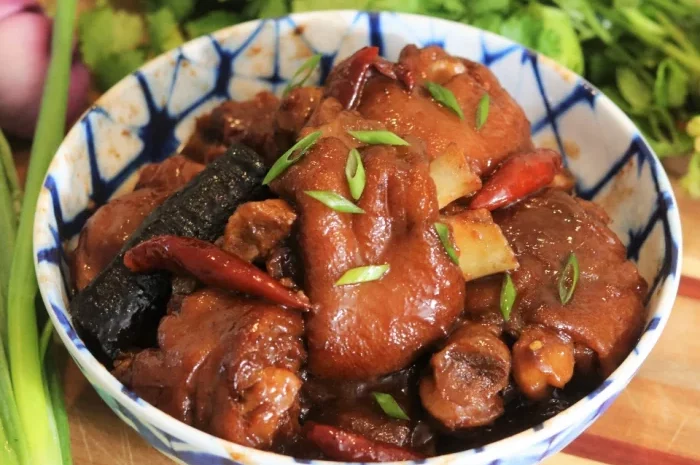Chinese cuisine is celebrated worldwide for its bold flavors, diverse ingredients, and rich culinary traditions. However, many people have experienced the peculiar phenomenon of feeling sleepy or lethargic after indulging in a hearty Chinese meal.
While it’s often dismissed as the “Chinese food coma,” the underlying reasons behind this phenomenon are more complex than meets the eye.
In this article, we delve deep into the science and culture behind why Chinese food might leave you feeling sleepy, exploring various factors such as ingredients, cooking techniques, and cultural influences.
Understanding the Role of MSG
One of the most commonly cited culprits behind the “Chinese food coma” is monosodium glutamate (MSG), a flavor enhancer commonly used in Chinese cooking. MSG has been a subject of controversy for decades, with some studies linking it to adverse reactions such as headaches, nausea, and fatigue.
However, scientific evidence suggests that MSG is generally safe for consumption in moderate amounts and is unlikely to cause significant adverse effects in the majority of people.
Despite this, some individuals may be sensitive to MSG and experience symptoms such as fatigue after consuming foods containing high levels of this flavor enhancer.
The Carbohydrate Connection
Another factor that may contribute to post-Chinese food lethargy is the carbohydrate-rich nature of many Chinese dishes.
Rice, noodles, and other starchy ingredients are staples of Chinese cuisine and can lead to a temporary spike in blood sugar levels followed by a subsequent crash, leaving you feeling tired and sluggish.
Additionally, dishes that are high in refined carbohydrates and low in protein and fiber may exacerbate this effect.
To mitigate this, consider opting for dishes that incorporate whole grains, lean proteins, and plenty of vegetables to provide a more balanced and sustained source of energy.
Sodium Content and Fluid Retention
Chinese cuisine is known for its liberal use of soy sauce, which is high in sodium.
Consuming excessive amounts of sodium can lead to fluid retention and bloating, making you feel heavy and lethargic. Additionally, high sodium intake can disrupt electrolyte balance in the body, leading to feelings of fatigue and weakness.
To minimize the impact of sodium on your energy levels, choose dishes that are lower in sodium or ask for sauces and condiments to be served on the side so you can control your intake.
The Role of Fat and Oil
Many Chinese dishes are stir-fried or deep-fried in oil, which can contribute to feelings of heaviness and lethargy after consumption.
While fat is an essential nutrient that provides energy and aids in nutrient absorption, excessive consumption of fried foods can lead to digestive discomfort and feelings of sluggishness.
To reduce the amount of fat in your meal, opt for steamed, boiled, or lightly stir-fried dishes instead of deep-fried options. Additionally, you can ask for dishes to be prepared with less oil or request sauces to be served on the side so you can control the amount you consume.
Cultural Influences and Mealtime Rituals
In Chinese culture, mealtimes are often viewed as an opportunity for relaxation and socializing with family and friends. It’s not uncommon for meals to be leisurely affairs that extend over several courses and hours, allowing ample time for conversation and enjoyment.
The combination of a hearty meal, relaxed atmosphere, and possibly a glass or two of wine or beer can contribute to feelings of drowsiness and contentment. While these cultural practices are an integral part of the dining experience, they may also contribute to post-meal fatigue, especially if meals are consumed late in the evening or close to bedtime.
Tips for Combating Post-Chinese Food Fatigue
While the “Chinese food coma” may be an unavoidable side effect for some, there are several strategies you can employ to mitigate its effects:
1. Balance Your Plate:
Opt for a balanced meal that includes a variety of protein, vegetables, and whole grains to help stabilize blood sugar levels and promote sustained energy throughout the day.
2. Watch Your Portion Sizes:
Be mindful of portion sizes, especially when it comes to carbohydrate-rich foods like rice and noodles. Stick to smaller servings to prevent overeating and minimize post-meal fatigue.
3. Stay Hydrated:
Drinking plenty of water before, during, and after your meal can help prevent dehydration and mitigate the effects of sodium and carbohydrate consumption.
4. Choose Wisely:
When dining out, opt for lighter, less greasy dishes such as steamed or stir-fried vegetables, grilled meats, and soups to minimize feelings of lethargy.
Conclusion
While the exact reasons behind the “Chinese food coma” may vary from person to person, it’s clear that a combination of factors such as MSG, carbohydrate content, sodium levels, and cultural influences may contribute to feelings of sleepiness and fatigue after consuming a hearty Chinese meal.
By understanding these factors and making mindful choices about what and how much you eat, you can enjoy the rich flavors and culinary delights of Chinese cuisine without succumbing to post-meal lethargy.


























